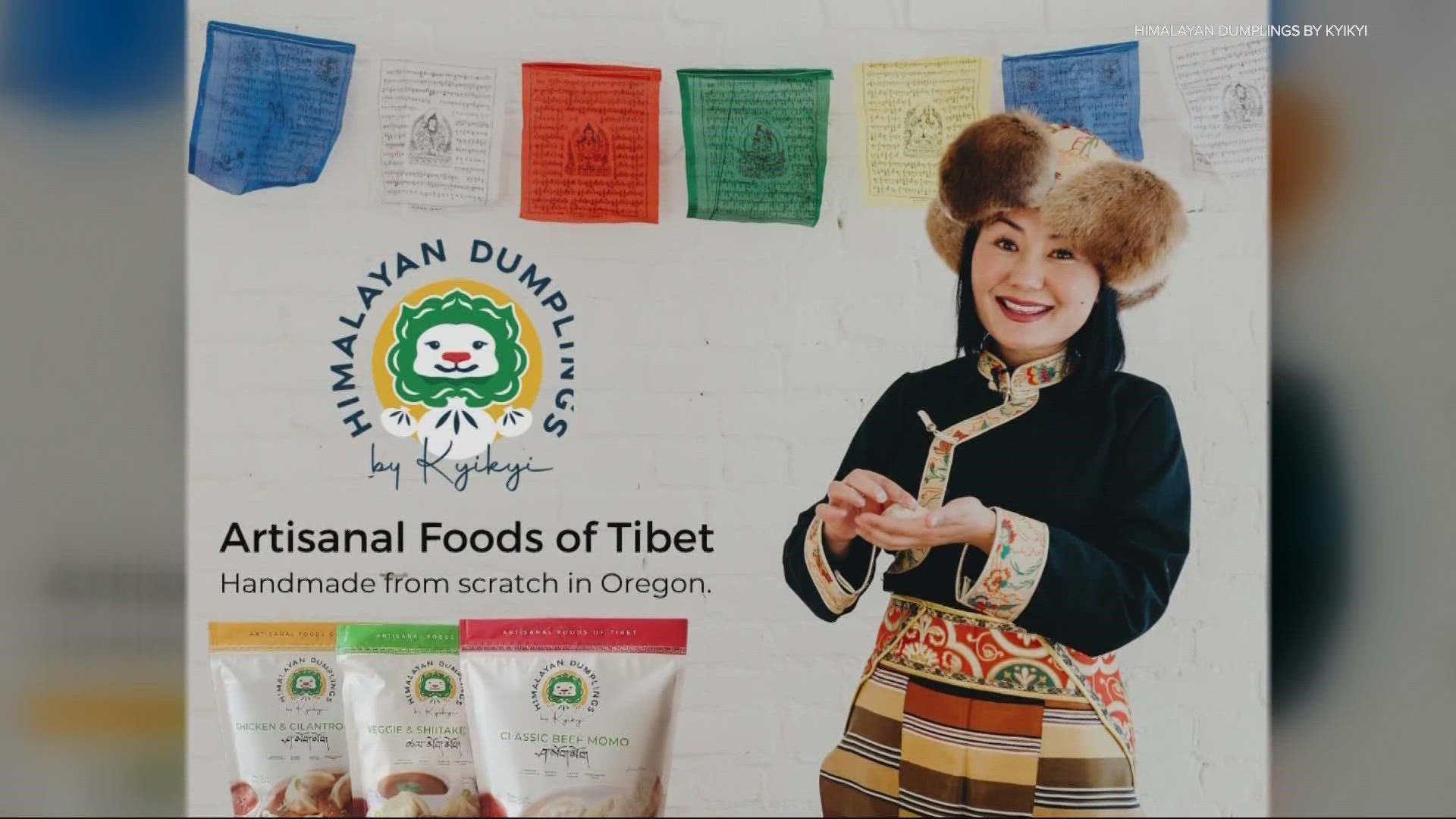BEAVERTON, Ore. — A Beaverton woman is embarking on a meaningful journey to grow her small business in a big way.
Kyikyi calls herself a Tibetan exile. She said she immigrated to the U.S. about 20 years ago from Tibet and is now committed to sharing her culture and promoting representation through food.
Food is a love language for many people and that is especially true for Kyikyi. She began sharing her love of food and her love for her culture at the Beaverton Night Market about six years ago. She served up Himalayan dumplings, or momos, Tibetan handpies and other food.
“This allows me to achieve my greater aspiration, which is to raise awareness about my Tibetan culture,” said Kyikyi.
But during the pandemic, opportunities to sell her momos became few and far between. For years she had played with the idea of packaging and selling her dumplings. So, she took the leap, deciding to try to scale up and jump through all the complicated regulatory hoops in order to package and sell her handmade frozen dumplings and handpies. Kyikyi described her handpies as akin to an empanada. Now she has a big accomplishment under her belt.
“I launched the first woman-owned Tibetan frozen food brand in the U.S.,” she said.
The feat came through a lot of work.
“It's intensive, and I probably spent much of last year in pandemic, while working a full time job with kids, doing this,” said Kyikyi.
“There have been countless hours of just work, just a lot of hard work, a lot of tears, sometimes crying in the bathroom.”
It took Kyikyi even more time and effort because she worked hard to buy local, or at least American-made, from the packaging to design.
“A lot of the professionals that I sourced some of the work to, pretty much majority of them were women-owned small local businesses,” Kyikyi said.
Locally-sourced products and services are more expensive than using an overseas supplies, but Kyikyi hopes customers look beyond the sticker shock — her momos, for instance, are sold for $25-$30 for a bag of 20 — because her dumplings are larger than most people expect.
“My Himalayan dumplings, they are about 40 to 50% larger than the average pot sticker that you might see in the market,” said Kyikyi.
Momos are not only present in Tibet, but have also been adopted in a number of countries in the Himalayan region such as India, Nepal and Bhutan.
Just under a month since her soft launch, and she said the response has been beyond her expectation.
“While seeing the orders come in […] I couldn't stop myself from refreshing and looking,” she said.
For Kyikyi, who said she has a good day job, expanding her business isn’t about making money. It’s about sharing her heritage.
“It makes me feel a great sense of pride and satisfaction and validation in terms of who I am and my Tibetan cultural identity. And my hope is that it is a medium through which I can introduce people further into Tibetan culture," said Kyikyi.
She said Tibetans make up a small community worldwide, which translates to less representation overall.
“That is another reason that I felt very, very inspired and motivated to hopefully break that glass ceiling and do something in my community that hasn't been done before, with the hope that it will inspire and empower others […] to do the same,” Kyikyi said.
“I get messages constantly from people saying how empowered they feel and how proud they feel. To see a Tibetan woman and Tibetan immigrant do something so big like this.”
Kyikyi said she hopes she can empower other Tibetans and immigrants and introduce the larger community to Tibetan culture through food.
“This is my vision. This is my dream, my passion. I'm doing it one step at a time.”
Kyikyi said right now it’s pretty much a one-woman show with some help from her family. Her next goal is to get feedback from customers, then hopefully hire on more people and sell her momos in grocery stores, connecting even more people to her culture.
For now, Kyikyi will continue producing momos and handpies in small batches, made by hand. People who are interested in trying them can visit her website.

